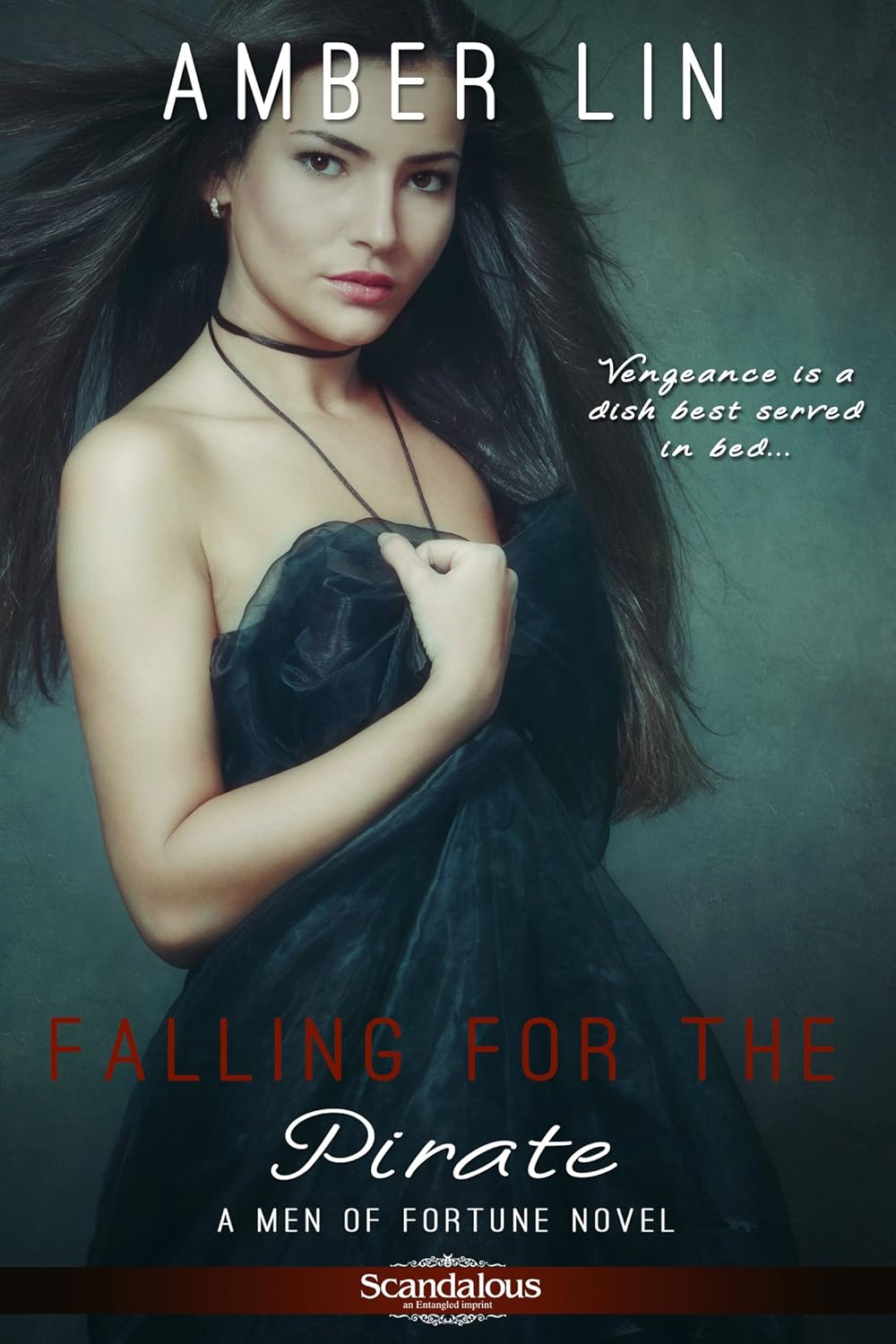new posts in all blogs
Viewing: Blog Posts Tagged with: revenge, Most Recent at Top [Help]
Results 1 - 13 of 13
How to use this Page
You are viewing the most recent posts tagged with the words: revenge in the JacketFlap blog reader. What is a tag? Think of a tag as a keyword or category label. Tags can both help you find posts on JacketFlap.com as well as provide an easy way for you to "remember" and classify posts for later recall. Try adding a tag yourself by clicking "Add a tag" below a post's header. Scroll down through the list of Recent Posts in the left column and click on a post title that sounds interesting. You can view all posts from a specific blog by clicking the Blog name in the right column, or you can click a 'More Posts from this Blog' link in any individual post.

May Contain Spoilers
Review:
As you know, Harlequins are my crack. It doesn’t matter which series, I love them all. I can always count on them for a quick escape from reality, so when the author of Tycoon’s Delicious Debt asked if I would review it, I jumped. I haven’t read Susanna Carr previously, so I was eager to give a new to me author a try. I have read a few of the books in The Chatsfield continuity, which was another plus because once I start something, I try to finish it, (though I’m not always successful!).
Serena Dominguez is consumed by an all-encompassing rage that has directed every move she’s made since she was old enough to work. The Brocks destroyed her family, plunging them into poverty and despair. She was forced to watch as her mother sold off one piece of jewelry after another to keep food on the table and a roof over their heads. Finally, the strain became too much for her parents and they divorced, another casualty of the Brock family. Seething with an anger that can only be quenched after she has done to the Brocks what was done to her family, Serena finally has the means to bring about their ruin.
Cooper Brock took over the family business after his father, Aaron, retired. Cooper is aware that his father didn’t play on a level playing field, and heck, he hasn’t either. Pressured to be successful in every endeavor, Cooper cheated his way into his first major deal, giving himself a reputation that he hadn’t really earned. When Serena appears with a tantalizing offer, he must reject it because the price is too high. She sniped a land deal from him, and now she’s willing to sell it to him for hotel shares he owns. He needs those shares, though, to keep the lid firmly sealed on his previous dirty deal. Now that he has become successful in his own right, through legitimate negotiations, he isn’t proud of his past and he’ll do anything to keep it quiet. When Serena threatens to reveal his father’s dirty laundry to the press, however, he realizes that he may be forced to sacrifice his own reputation to protect his father.
I enjoy the enemies to lovers trope, so I plowed right through this book. While I had a hard time sympathizing with Serena, I loved Cooper. He astutely chastises her for wasting most of her adult life seeking her revenge, even after her parents had moved on with their lives. When it’s revealed that her father wasn’t a completely innocent victim – well, that made her thirst for vengeance less warranted. Serena picked and chose which transgressions deserved to be punished, conveniently ignoring that her father was just as shady as Cooper’s. That and her insistence that it was her due to have the privileged upbringing that Cooper had just grated every time she brought it up.
Both Cooper and Serena had empty lives, and they needed each other to realize what a hot mess they made of their potential. Serena wasted all of her energy chasing something that didn’t really matter any more, and even with her goal in reach, she was still unhappy. There was no joy or satisfaction in bringing about the ruin of another life. Cooper spent his entire life trying to be perfect, to earn the love and respect of his parents, something that he never received. All of his accomplishments meant nothing because he didn’t have anyone to share them with. Cooper and Serena are able to finally let their guard down around each other, and discover a sense of peace and belonging. Cooper felt especially grounded when he was with Serena, and he’s the first to realize how special their relationship is. Serena fights him every step of the way because she can’t set aside her anger, and that was my greatest complaint with the story. Serena just can’t let it go, even after Cooper proves himself to be a caring, honest man, and I found her constant distrust of him irritating. I thought the resolution was a little too rushed, but overall, I enjoyed Tycoon’s Delicious Debt.
Grade: B Great read for the beach!
Review copy provided by the author


He has a debt to pay…
Cooper Brock knows Serena Dominguez can ruin him with a snap of her delectable fingers, but he won’t give in to her demands easily. Instead, he gives Serena his own ultimatum: to confront the smoldering attraction between them.
And she’s ready to collect!
Serena has spent her life planning the downfall of this man. But when she yields to his challenge, Serena is stripped bare by Cooper’s raw passion. As he holds her in his arms and whispers her name, Serena realizes she may have just fallen in love with her enemy…

By:
[email protected],
on 4/24/2015
Blog:
Perpetually Adolescent
(
Login to Add to MyJacketFlap)
JacketFlap tags:
Books,
book review,
crime,
revenge,
bronx,
richard price,
Book Reviews - Fiction,
harry brandt,
Billy Graves,
the whites,
Add a tag
It has been seven years since Richard Price last published a novel and it has been worth the wait. Writing under the transparent pseudonym Harry Brandt, Richard Price again demonstrates he truly is a master when it comes to crime and American life. Price delivers a multi-layered, slow-burning portrayal of friendship, justice and revenge and […]
As a playwright, the overall goal when crafting a play, is to create a scenario that will carry the story to an engaging conclusion. Once the story is completed, it is the hope of the playwright that the story will have legs so to speak and find the right home, in order to share the playwright's vision with the public. It's always gratifying when one's aspirations are rewarded with the opportunity to realize this goal with actors reading the words of the play. On Thursday, August 7, "Retribution" had its first date with the public via Sundog Theatre's, "Summer Reading Series" and by all accounts having not been in attendance, it was well received.
In the way of background information, the one-act play was born in a writing forum as part of a playwriting challenge a number of years ago. The only stipulation was that the subject matter had to focus on revenge. Before embarking on all writing projects, I always start with two words, "what if..." Initially, "Retribution" began as a short 10-minute play called, "A Close Shave" focusing on a barber and a man receiving a shave. Over time and during the editing process, it took on a life of its own with an adaption of the story and taking a different angle. The play itself can best be described in the quotation, "revenge is a dish best served cold."
In as far as reaction to the play is concerned, Sundog Theatre's Eric Petillo, Curator of New Works and Administrative Assistant, wrote of the actors reaction when reading the play that "they all raved about your play. They told me that it had taken them all by surprise when the script suddenly took a left turn. One of the audience members said that it was a cross between "Steel Magnolias" and a Quentin Tarantino revenge fantasy."
Ask me if I'm happy. My story being compared to a Quentin Tarantino revenge fantasy AND Steel Magnolias, which is a favorite film, is some compliment! The only complaint was that it was difficult to visualize the graphic imagery accompanying the dialogue with the reading of my stage directions, The overall conclusion was that the whole play would benefit more from a full-scale production. Agree whole-heartedly.
For the record and in case anyone reading this is interested, the play is ready for its debut and if Mr. Tarrantino is interested, my people can speak to your people...or something.
By: johnmanders,
on 8/15/2014
Blog:
John Manders' Blog
(
Login to Add to MyJacketFlap)
JacketFlap tags:
pirates,
illustration,
art,
sketch,
book promotion,
illustration process,
shipwreck,
revenge,
pirate,
Blackbeard,
underpainting,
thumbnail,
baroque,
Bunthorne,
Queen Anne,
Add a tag
Queen Anne’s Revenge, that is. Queen Anne’s Revenge is the name of Blackbeard Teach’s flagship—though I have to admit I don’t know why he chose that name. Queen Anne ruled Great Britain & Ireland while Blackbeard was alive, so maybe he considered himself to be a privateer on behalf of the Crown? Was he not happy with the War of the Spanish Succession? I’d like it if, in the comments, someone could offer a better reason behind Teach’s name for his ship. Writers Alexander Pope, Jonathan Swift & pirate aficionado Daniel Defoe flourished under Queen Anne, so maybe her reign really was culture’s balmiest day—but why did she need to be avenged?
Anyway, he only captained Queen Anne’s Revenge for 3 years before she sunk off North Carolina. And so I had the wonderful opportunity to paint a sunken pirate ship for Eve Bunting’s new book, P is for Pirate. It was also a chance to pay tribute to fantastic illustrator Lloyd K. Townsend. When I say ‘pay tribute to’, of course I mean ‘steal shamelessly from’. I’ve admired Townsend since I was a wee lad, seeing his paintings in National Geographic. One in particular, from 1979, shows the sunken Spanish treasure ship Tolosa. This was my—cough—inspiration for R is for Revenge. Hey, at least I turned the ship around to face the other way!
Herewith, work in progress:
























May Contain Spoilers
Review:
After reading House of the Four Winds, I was in a pirate kind of a mood. Good thing I had Falling for the Pirate locked and loaded on my Kindle. I admit that I wasn’t charmed with the beginning, but after Juliana lost her memory, I was a convert. I’m not sure why I felt that way, because she’s not annoying or a bad person. Maybe her blind devotion to her missing father, and the risks she was willing to take to clear his name, didn’t work for me? Or maybe I liked the person she became better when her circumstances better mirrored Nate’s previous meager life? I’m totally baffled by my first response to her. Maybe I just needed to get to know her better?
After Nate catches her sneaking around in his new building, a chase ensues, and Juliana is injured and almost drowns, but Nate saves her. When she regains consciousness a few days later, she has no recollection of her past. She can’t even remember her name. Nate finds this all together too convenient; first, she was sneaking around his property, snooping through the file room. Second, he discovers that Juliana is the daughter of his greatest enemy. Her father murdered his parents and destroyed his young life, all for his own greed. Nate suspects that her father put her up to her midnight burglary. I have to admit that all of these background details made me a little nervous. How would Nate ever be able to trust Juliana and put his awful past behind him? Could he? How would she react when she regained her memory and learned of the horrible things her father did, and of Nate’s tireless quest for revenge?
Nate’s not really a pirate. Though he was imprisoned during his youth, he’s an honest, caring man. But because his hatred for the man who destroyed his family has driven him for the last ten years, he doesn’t allow himself to feel emotions. He lives for his revenge. He dreams of it, and it’s the only thing that kept him alive during the most trying times in his life. He’s gruff and abrupt with Juliana, though she slowly thaws his icy interior. Despite his desire to be perceived of as a harsh man, Nate simply isn’t. His experiences have made a better man of him, and though he doesn’t realize it, he is incapable of being cruel. Instead, he has a deep-seated need to protect the weak and the helpless from bullies. I really liked Nate!
While Juliana may have lost her memory, she’s savvy enough to realize that she currently has nothing. Regardless of her circumstances prior to falling under Nate’s protection, now she hasn’t two pence to rub together. Everything she has is because of his good will, and she feels an obligation to pay him back. While this gave him far too much power over her, he doesn’t take advantage of it. Honestly, all he wants is for her to exit his life so he can get on with his plans for revenge against her father, but since she has nowhere else to go, he’s kind of stuck with her. And, yup, before he’s what’s hit him, he’s fallen head over heels for her.
Because this is an amnesia story, I had to leave certain things by the wayside – like a sense of reality. Juliana’s forgotten memories are just a bit too convenient, but it didn’t bother me too much because I liked Nate so much. This is a quick and entertaining read that will fill a void in your afternoon or evening.
Grade: B
Review copy provided by publisher
From Amazon:


London, 1820
After the deaths of his parents and a dark, troubled childhood, Captain Nate Bowen vowed he would have his revenge. But he never expected to have the tool of his revenge dropped so neatly into his lap. Juliana Hargate is not only the daughter of his enemy, but is destitute, very much alone – and exquisitely desirable.
And now that Nate has saved her life, she’s at his complete mercy…
Captive. All Juliana wanted was to clear her father’s name. Instead, she’s been struck with amnesia – unable to recall even her name – and imprisoned by a tall, imposing, and entirely unscrupulous pirate. A pirate whose eyes seem to look past her skirts and many petticoats, and whose touch sends delicious ripples of desire through her. With every passing day, she finds herself tempted to give him the very thing he’s determined to take…
The post Review: Falling for the Pirate by Amber Lin appeared first on Manga Maniac Cafe.

By: Alice,
on 5/2/2014
Blog:
OUPblog
(
Login to Add to MyJacketFlap)
JacketFlap tags:
justice,
revenge,
osama bin laden,
laden’s,
*Featured,
osama,
laden,
David Jenkins,
How 9/11 Changed the Law,
Long Decade,
war or terror,
pesavento,
Books,
Law,
Add a tag
By David Jenkins
On 2 May 2011, as news spread that a US Navy SEAL team had killed Osama bin Laden, Americans across the country erupted in spontaneous celebrations. Cameras showed the world images of jubilant crowds in Washington, DC and at New York City’s Ground Zero, reveling in the long-awaited payback against America’s nemesis. With bin Laden’s death, nearly ten years after the fall of the Twin Towers, a conflict-weary nation had its revenge. Many now expected closure to the trauma of 9/11 and the costly, decade-long “war on terror.”
But would Americans find the closure they sought in bin Laden’s demise? A new psychological study by international researchers indicates that some haven’t. According to it, many Americans indeed reported feeling that the killing of bin Laden was “vicarious revenge” for the victims of the 9/11 attacks and that justice had been served. These respondents were not just satisfied with bin Laden’s death itself, but were especially pleased that American forces — not accident, natural causes, or allies — had finally gotten him. Interestingly, however, the study concluded that those who expressed these sentiments the strongest desired further retribution against any others deemed somehow responsible for those September atrocities. So, three years on, bin Laden’s killing has not wholly slaked the collective thirst for revenge. This study’s findings suggest that the “long decade” after 9/11 has an additional psychological component that goes beyond the themes discussed by that volume’s contributors. If this is so, the changes in law occurring over this transformative period could be manifestations not just of a pervasive fear of another attack, but of a latent, still aggressive revanchism.

Flag-waving in Times Square on the night Osama bin Laden killed. Photo by Josh Pesavento. CC BY 2.0 via Wikimedia Commons.
Thus, while public attitudes towards the “war on terror” continue to shift, it remains uncertain just how they relate to the significant, long-term legal developments brought about by that conflict. In the years immediately after 2001 — alongside the military interventions in Iraq and Afghanistan — the United States and Britain, in particular, introduced controversial counter-terrorism measures as part of a transnational effort to fight the unconventional threat of terrorism, prevent the proliferation of weapons of mass destruction, and reassert national security interests in a globalized world where the nation-state had suddenly lost its monopoly on highly destructive, political violence. While these challenges were clear after 9/11, the best means of tackling them were not — especially in ways compatible with existing norms of liberal democracy, such as a respect for constitutional governance, the rule of law, and human rights. Extreme, often covert measures like military detention, torture, and extraordinary rendition directly challenged and raised doubts about our commitments to these fundamental principles. While the worst practices have since come to an end, other controversial, if less dramatic, counter-terrorism measures remain in effect. Preventive restrictions on liberty, use of secret courtroom evidence, drone strikes, and widespread surveillance, for example, are just some of the national security powers that have taken root over this long decade. Once touted by politicians as necessary but temporary, such powers now appear to be permanent with no sign of rollback. By and large, the public has accepted and sometimes welcomed many of these strategies for defeating terrorism, even as its skepticism towards government security policies has grown.
At this point, it might be too simplistic to say that these legal changes persist because the “war on terror” also does; to do so is to imagine that the pre-9/11 world can somehow be recaptured, that we remain in a suspended state of exception from the normal, and that this conflict with terrorism still has a definite, if yet un-seeable, end. Sadly, as the aftermath of Osama bin Laden’s death shows, this is all probably untrue. The threat of terrorism is likely inextricable from the globalized world in which we now live and the increasing securitization of our democracies belie a return to liberal norms as once understood. Military withdrawals from Iraq and Afghanistan signal an end neither to political instability nor insecurity in the region. Al Qaeda and Islamists still call for jihad against the West three years after the fall of bin Laden, their martyred standard-bearer. Nor does it seem that the fires of revenge for 9/11 have yet gone cold in us since his killing; if those coals still smolder — as researchers claim they do — then we risk embracing a new age of perpetual conflict and suspicion. In this age, neither victory nor justice will be achievable, but what we were fighting for will have been forever lost.
David Jenkins is an Associate Professor of Law at the University of Copenhagen. He holds a JD from Washington & Lee School of Law and a Doctor of Civil Law degree from the McGill University Institute of Comparative Law. Along with Amanda Jacobsen and Anders Henriksen he is the Editor of The Long Decade: How 9/11 Changed the Law.
Subscribe to the OUPblog via email or RSS.
Subscribe to only law articles on the OUPblog via email or RSS.
The post Justice, revenge, and the law after Osama bin Laden appeared first on OUPblog.

by Deren Hansen
When you began to believe your writing might actually be good enough to be published, you were determined to do everything right: you read writing books and blogs, went to conferences, found a critique group, polished your novel, researched agents, and sent the perfect query letter. And in return you got nothing but silence punctuated by the occasional rejection.
You did everything right and you weren’t asking for special treatment, so why didn’t you get any kind of positive response?
Even if you understand publishing is subjective, as time, rejections, and silence wear away your enthusiasm, it’s hard not to suspect agents and editors of conspiring to suppress your genius or being willfully ignorant.
Vengeance and vindication make a powerful motivational cocktail. Like many intoxicating substances, a little might help but a lot is a recipe for trouble: a desire for vindication may be good if it motivates you to finish and polish your project but leaping into artisan publishing because you’re going to show all those shortsighted publishing professionals how wrong they were is a recipe for frustration and failure.
To begin with, the people who rejected or ignored you will probably never know that your project has been published because there are simply too many things being published for anyone to keep track of it all. Should they hear of your project they will likely give it little or no notice: agents and editors are looking for new material to sell.
The only thing guaranteed to get the attention of the gatekeepers is to release a book whose sales go off the charts. But even that won’t convince an agent or editor she was wrong. Beyond subjectivity, there’s so much serendipity in the process of producing and selling a book that having different people involved could produce wildly differing results: a different agent—your dream agent—might have sold the project to a different editor whose sensibilities might have colored the story just enough to miss striking a popular chord.
At a practical level, the slow, laborious path of artisan publishing means that you must invest a tremendous amount of work and patience into something where the odds of it making a big enough splash in the market to cause the gatekeepers even a twinge of regret are extremely small.
But the deeper truth is that artisan publishing is about love and devotion, which makes it fundamentally ill-suited for revenge.
Deren Hansen is the author of the Dunlith Hill Writers Guides. Learn more at dunlithhill.com.
By:
KidLitReviews,
on 9/20/2012
Blog:
Kid Lit Reviews
(
Login to Add to MyJacketFlap)
JacketFlap tags:
friendship,
dance,
graphic novel,
comics,
ballet,
Shakespeare,
Middle Grade,
monkeys,
high school,
reluctant readers,
revenge,
jealousy,
middle grade book,
4stars,
modern dance,
Library Donated Books,
Add a tag
 4Stars
Dance Class #2: Romeo and Juliet
Beka
Papercutz Printing
978-1597073172
No. of Pages: 48 Ages:7 and up
.........................
The girls from Dance Class: Julie, Alia, Lucie, and Carla, are getting ready for their production of "Romeo and Juliet," which may be the wackiest version ever produced! Of course, Julie lands the coveted role of Juliet, which makesCarla very jealous. But who should play Romeo? Well, would you believe a hip-hop dancer named Tim? And will Tim and Julie actually fall in love, just like Romeo and Juliet?
.................
4Stars
Dance Class #2: Romeo and Juliet
Beka
Papercutz Printing
978-1597073172
No. of Pages: 48 Ages:7 and up
.........................
The girls from Dance Class: Julie, Alia, Lucie, and Carla, are getting ready for their production of "Romeo and Juliet," which may be the wackiest version ever produced! Of course, Julie lands the coveted role of Juliet, which makesCarla very jealous. But who should play Romeo? Well, would you believe a hip-hop dancer named Tim? And will Tim and Julie actually fall in love, just like Romeo and Juliet?
.................
The Dance Class Series are graphic novels with humor laced through each page. Each page is like a one-line joke, or an arc, ala soap operas. It does add up to a complete book that makes absolute sense, in its own wacky, fun way. The ballet troupe returns for dance class and play practice. On each page, the reader enters one of the dancers’ moments, usually comically timed, with a punch line in the last bubble.
In one vignette (above), Alia is stretching and studying her math book. Julie and Lucie say it would be nice if it were possible to study dance while in math class. Alia thinks about it and figures out how to do just that.
Girls will loves this graphic book of ballet dancers and the antics of their days learning and rehearsing for the big production play of
Romeo and Juliet. The usual suspects are there, the three best friends Julie, Alia, and Lucie, and their main nemesis Carla.
A new student, hip hopping Tim, is casted as Romeo and the four girls compete for his affections and the role of Juliet. When Carla  misses out to Julie, she goes into revenge mode, and the modern update of the Shakespeare classic becomes a comedy of errors, due to teen jealousy.
misses out to Julie, she goes into revenge mode, and the modern update of the Shakespeare classic becomes a comedy of errors, due to teen jealousy.
The illustrations are colorful, lively, and expressive. If you read book one of the Dance Class Series, you know that the book was larger than this one. In the world of children’s publishing, the smaller the book, the older the intended reader. Who knew? Apparently, Papercutz, and their parent company Macmillan, understand the psychology of children’s books.
The writer and illustrator team of Beka* and Crip are the French artists who conceived these graphic gems. As I write this review of Book 2, Book 3: African Folk Dance Fever is hitting bookstore shelves. I hope to get a copy and review it here soon.
 Girls ages six to sixteen will love Dance Class: Romeo and Juliet. The story revolves mainly around the actions and emotions of teenage girls. I doubt many boys will find this one interesting, though there are always exceptions.
Girls ages six to sixteen will love Dance Class: Romeo and Juliet. The story revolves mainly around the actions and emotions of teenage girls. I doubt many boys will find this one interesting, though there are always exceptions.
The Dance Class books are good reads for reluctant readers. The text is clear and not at a lower reading level than one would expect. The story is manageable at 48 pages, engaging and connects with the illustrations to make for one complete read.
One key to getting a reluctant reader to read is finding a story about something they are passionate about or love doing. For these reasons and more, The Dance Class Series is perfect for reluctant readers. It is also perfect for kids who like graphic novels, a good story, humor, and dance.
*Beka is short for the writing team of Bertrand Escaich and Caroline Rogue
…………………………………….
Author: Beka* website
Illustrator: Crip website
Publisher: Papercutz Printing website
Release Date: July 3, 2012
ISBN: 978-1597073172
Number of Pages: 48
Ages: 7 and up
.................

Filed under:
4stars,
Library Donated Books,
Middle Grade Tagged:
ballet,
comics,
dance,
friendship,
graphic novel,
high school,
jealousy,
middle grade book,
modern dance,
monkeys,
reluctant readers,
revenge,
Shakespeare 






I've been waiting for over two months for about four buds to flower on a plant in my kitchen, which hasn't bloomed in a few years. My waiting started when I first noticed something small was forming in one spot instead of just new leaves. After investigating, I found more of the same happening.
The buds are getting larger and I can see a small bit of the flowers, as you can tell from the photo on the left. Still, I can't see the entire flowers. I can hardly wait to see what they'll look like.
How does this relate to writing?
A good book will keep the reader waiting and guessing what will happen next. A good author will not spill the beans too soon, but string the reader along to find out how the character(s) will get out of predicaments and hopefully live happy and fulfilled lives at the end of the book. In the case of a series, the author will need to take care to offer some sort of denouement at the end of each book, yet leave the reader curious about future books in the series.
In my debut mystery novel, Two Wrongs, the two main characters play a waiting game. For both, it's about how to exact revenge. When Danny's sister, Mary Alice, is murdered, he believes he knows who did it and testifies against Kevin. The fact that Kevin is sent to prison isn't enough. He wants Kevin dead for what he did to Mary Alice. Kevin has a very different waiting game, waiting to get out of prison, then planning his own sort of revenge.
What kind of waiting game is in your own book or someone else's that you like?
If you'd like to read Two Wrongs, a tale of vengeance and the healing power of love (yes, there is romance included) you can find it for 99 cents on
Kindle,
Nook,
Smashwords, and
other ereaders.
.jpeg?picon=3655)
By: Read Now Sleep Later,
on 7/27/2011
Blog:
Read Now Sleep Later
(
Login to Add to MyJacketFlap)
JacketFlap tags:
Fairytales,
4 stars,
Vertigo,
revenge,
Thuy,
BillWillingham,
folktales,
Siblings,
Fables,
Add a tag
Peter & Max by Bill Willingham
with illustrations by Steve Leialoha
Publication date: 13 October 2009 by Vertigo
ISBN 10/13: 1401215734 | 9781401215736
Category: Young Adult Fantasy
Format: Hardcover (also available in eBook, Kindle and audiobook)
Keywords: Revenge, Siblings, Fairytales, Folktales, Fables
Peter & Max is a stand alone novel set in the
Fables-universe of author Bill Willingham. Fans of
Fables will be familiar with the folk and fairy tale personalities that show up in the story. However, those who haven't read the series need not worry. You don't need to be a fan of even very familiar with
Fables in order to enjoy the book (though you should be, so do yourself a favor and pick up
Fables asap ;).
Peter & Max is the story of Peter and Max Piper of Pied Piper fame. Their entire family is part of a traveling minstrel show. One dark night, soldiers invade their lands the family is torn apart. Alone and scared, Peter becomes a thief to survive. Max, having gone down a dark path, works to perfect his dark magic. He vows that one day, he will find and kill Peter, taking the flute which he believes should have rightfully been passed down to him. Hundreds of years pass and Peter is living a quiet life in a new world with his wife, Bo Peep, when he learns that Max has been spotted. Knowing the death and darkness that Max brings, Peter leaves on a quest to find his long lost brother and end their feud once and for all.
I didn't know much about the legend of the Pied Piper before reading this book. Most of what I remember is from an old
Tom & Jerry cartoon. However, I was quickly pulled into the story of Peter Piper and his brother Max. The story shifts perspective between Peter and Max and we see through each of their eyes the events that end up shaping them and eventually pulling them apart. Max's descent into darkness is fascinating to watch and he definitely creeped me out.
Willingham does a fine job of translating the Fables world into a full length book. He blends what we already know about a story with his own ideas so that it is one seamless world. Like many traditional fairy tales,
Peter and Max is at times dark and violent. It's a world where wondrous and terrible things happen and where not every ending is a happy one. Lovely black and white illustrations by Steve Leialoha add to its storybook quality. For
Fables fans it's a nice addition to the universe. For fans of dark fairy tales or modern retellings of classic tales, it's a quick and fun read.
![]()

By: Anastasia Goodstein,
on 5/18/2011
Blog: Ypulse
( Login to Add to MyJacketFlap)
JacketFlap tags:
the secret circle, Youth Marketing, glee, the cw, cbs, napoleon dynamite, Vampire Diaries, X factor, "smash", allen gregory, h8er, hart of dixie, the new girl, TV, The O.C., ABC, American Idol, grimm, dancing with the stars, FOX, once upon a time, revenge, nbc, Add a tag
 This week, the major TV networks got all dressed up to court advertisers at their upfront presentations. They casually announced several show cancellations — “Criminal Minds: Suspect Behavior,” “Hellcats,” “$#*! My Dad Says,” and many,... Read the rest of this post This week, the major TV networks got all dressed up to court advertisers at their upfront presentations. They casually announced several show cancellations — “Criminal Minds: Suspect Behavior,” “Hellcats,” “$#*! My Dad Says,” and many,... Read the rest of this post

After years of name calling Morton made it his life goal to get access to the button. So don't call him yellow, nerd, or geek; he will push the button. You ask me what button I speak of? I tell you, man, it is THE one.
10.5 x 5.5 Pen and ink, and digital color.
It has been awhile and it is good to be back.
.jpg?picon=380)
By: Just One More Book!!,
on 5/7/2008
Blog: Just One More Book Children's Book Podcast
( Login to Add to MyJacketFlap)
JacketFlap tags:
Review, Podcast, Picture book, War and peace, Revenge, childrens-book, and Death — with a Happy Ending), Henrik Drescher, McFig & McFly (A Tale of Jealousy, Thinking/Attitude, acceptance, Community, Family, Ages 4-8, Friendship, Envy/Competition, Fun, Life Skills, Life and death, Cartoony, Busy, Hilarious, Harmony, Man, Communication, Love/Romance, Architecture, Contributing/Industry, Co-operation/Collaboration, Personalities, Father/Son, Father/Daughter, Add a tag
 Author: Henrik Drescher Author: Henrik Drescher
Illustrator: Henrik Drescher
Published: 2008 Candlewick Press (on JOMB)
ISBN: 0763633860
A veneer of feigned pleasantries can’t conceal the ceaseless, senseless competition that corrupts then consumes former friends in this deliciously absurd yet apt demonstration of misguided attention and life misspent.
Chapters.ca Amazon.com
|







































 Author:
Author:
This is BEAUTIFUL. I’m really enjoying these process photos.
Thanks, Kirby!
Very cool, John! I concur with Kirby… really enjoy seeing the process!
Thanks, Jer!